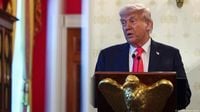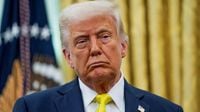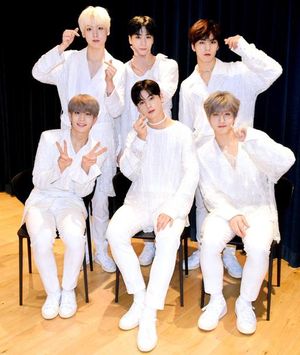The ongoing conflict between Russia and Ukraine has reached a critical juncture, as U.S. President Donald Trump and Secretary of State Marco Rubio signaled that the United States may withdraw from efforts to broker a peace deal if clear progress is not made soon. This warning comes after months of unsuccessful negotiations aimed at ending the war that began with Russia's full-scale invasion in February 2022.
During a press briefing on April 18, 2025, Trump stated, "Negotiations between Ukraine and Russia are coming to a head," asserting that neither side is attempting to deceive him in his efforts to facilitate peace. His comments followed Rubio's earlier remarks that the U.S. might "move on" from trying to secure a peace agreement if there are no signs of advancement in the coming days.
Rubio's assessment underscores the urgency of the situation, as he noted, "We are now reaching a point where we need to decide whether this is even possible or not." He emphasized that the U.S. administration aims to make a decision in a matter of days, reflecting a growing impatience with the lack of progress in negotiations.
As the situation unfolds, another meeting among U.S., Ukrainian, and European officials is scheduled for next week in London, which Rubio hinted could be decisive in determining the future of U.S. involvement in the peace process. The U.S. has been actively engaged in discussions about a minerals agreement with Ukraine, which is intertwined with Trump's broader strategy to recoup billions of dollars in military assistance sent to Kyiv since the war began.
Trump's administration has faced criticism for its handling of the conflict, with many questioning whether the U.S. should continue to support Ukraine militarily and financially if a peace deal cannot be reached. When pressed on this issue, Trump remained optimistic, stating, "I think we have a really good chance of getting it done, and it's coming to a head right now." However, he refrained from committing to a specific course of action should negotiations fail.
Meanwhile, the Kremlin has described the ongoing negotiations as "fairly complex," with spokesperson Dmitry Peskov acknowledging that a previously agreed-upon ceasefire has now lapsed. Peskov reiterated that Russia is open to dialogue and is striving to resolve the conflict while securing its own interests.
In the backdrop of these diplomatic efforts, violence continues to plague Ukraine. Reports indicate that Russian strikes have resulted in civilian casualties, with one attack in Kharkiv injuring 98 people, including six children. This follows a deadly missile strike in Sumy that killed a customer at a bakery and wounded an employee.
The complexities of the negotiations are further highlighted by the differing positions of the warring parties. Russia has made its acceptance of a comprehensive ceasefire contingent upon Ukraine halting its mobilization efforts and the cessation of Western arms supplies, demands that Ukraine has firmly rejected.
In addition to the diplomatic and military developments, the U.S. Supreme Court recently intervened in a separate matter, temporarily blocking the deportations of Venezuelan men held at a detention center in Texas. This ruling allows these detainees, many of whom are alleged members of the Tren de Aragua gang, to challenge their deportation in court. The American Civil Liberties Union (ACLU) has taken legal action against the Trump administration's use of the 1798 Alien Enemies Act to expedite these removals.
On the international front, an Iranian delegation led by Foreign Minister Abbas Araghchi has arrived in Italy for nuclear talks with the United States. These discussions, mediated by Oman, follow a previous round of talks that both sides deemed productive. Trump has reiterated his demand for Iran to cease production of highly enriched uranium, which many believe is aimed at developing nuclear weapons.
In another significant development, the White House has launched a revamped COVID-19 website that promotes the controversial theory that the virus originated from a Chinese laboratory. This theory has gained traction in recent months, despite the World Health Organization's ongoing investigation into the pandemic's origins.
As the political landscape continues to shift, the Trump administration faces mounting challenges both domestically and internationally. The complexities of negotiating peace in Ukraine, addressing immigration issues, and navigating international relations with Iran and China are just a few of the hurdles that lie ahead.
With the stakes higher than ever, the coming days will be crucial in determining the future of U.S. involvement in the Russia-Ukraine conflict and the broader implications for global security. As Trump and Rubio prepare for the next round of talks, the world watches closely, hoping for a resolution to the ongoing violence and instability in the region.






